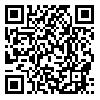Introduction: Several current academic policies are being developed without participation of academics and relevantscientific associations in Iran. This study was conducted to explain the views of academics of nursing and midwifery on the development of current educational and research policies.
Method: This qualitative study was conducted on 12 academic members of the Faculty of Nursing and Midwifery. Semi-structured interviews were conducted and continued until data saturation was achieved. Purposive sampling was used to recruit the participants. All interviews were tape recorded and transcribed verbatim. A content analysis approach was used to explore the data.
Results: Overall, 321 codes were found, and then these codes were summarized and categorized based on conceptual similarities and differences and ultimately described in three main categories and six sub categories. "Ignoring the nature of different disciplines in policy making" and, "lack of policymakers' awareness of working conditions" was the main factors identified by the faculty members. "Lack of recognition of college administrators from higher education management" and "the existence of a centralized policy system in the higher education system" were identified as barriers to contribution to policy development by the academic staffs.
Conclusion: It is recommended that policy-makers in the field of higher education in nursing and midwifery consider revision of existing policies and pay special attention to the requirements of these disciplines. We also suggest involving more nursing faculties in the future policy making endevours.
Key words: Faculty, nursing, midwifery, qualitative
Received: 2017/06/20 | Accepted: 2017/09/23 | Published: 2018/03/18
| Rights and permissions | |
 |
This work is licensed under a Creative Commons Attribution-NonCommercial 4.0 International License. |


